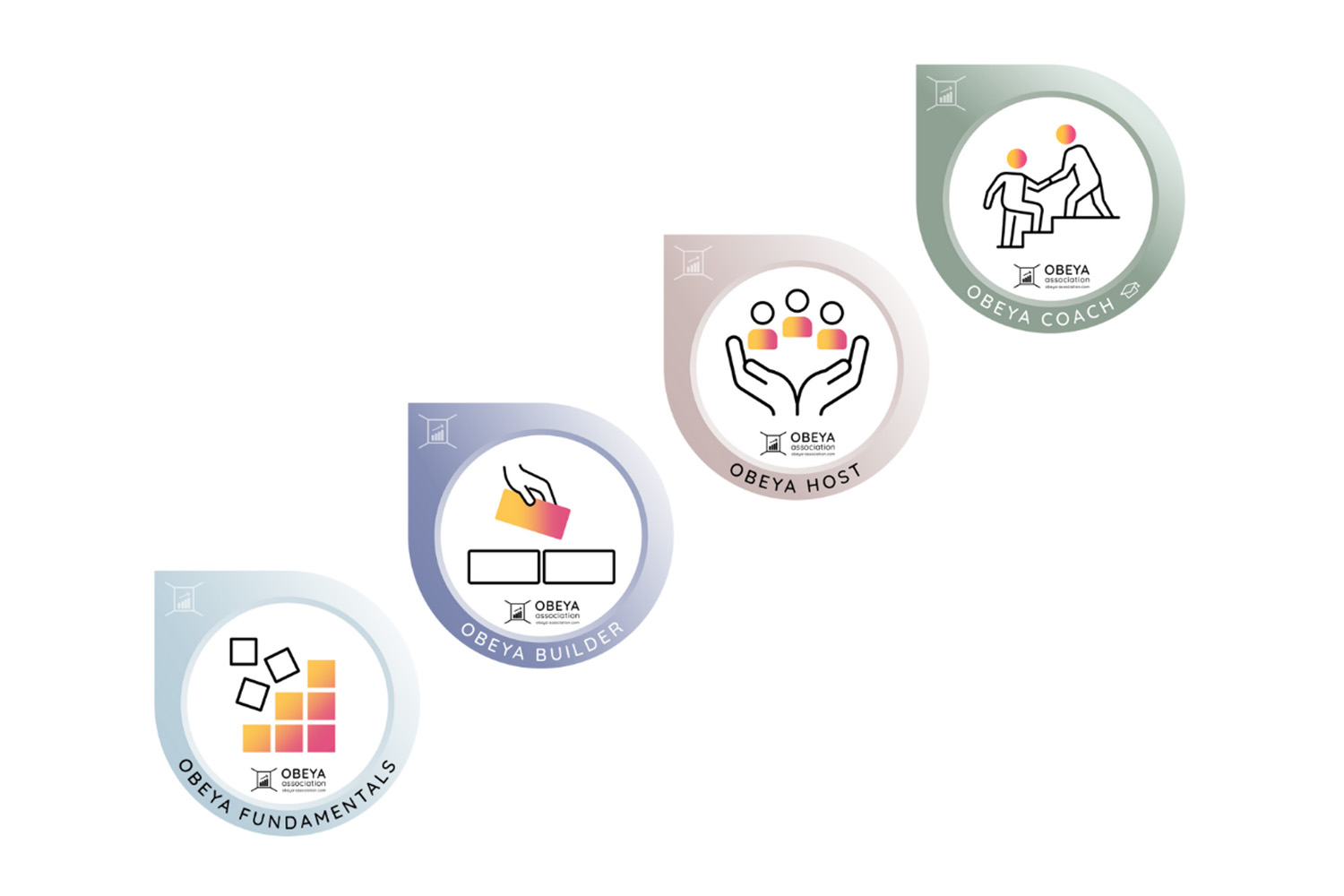Obeya Roles – Professional Development
An Obeya cannot evolve without motivated individuals. Getting the best out of your Obeya requires specific expertise and skill. There is craftsmanship to be identified in the field of Obeya, in which Obeya professionals need to be trained and educated.
Looking at the different competencies, skills and tasks required in an Obeya you can define four sets of roles that together enable an Obeya to deliver meaning and value:
Obeya Builders, Obeya Hosts, Obeya Coaches. and the Obeya Sensei

Obeya Fundamentals Module
Elevate your career by enrolling in the Obeya Fundamentals Module, a course designed to help you start your Obeya journey. As the demand for Obeya expertise grows worldwide, mastering the fundamentals will give you a competitive advantage in the job market.
This course equips you with essential knowledge and tools needed to effectively implement and manage Obeya, paving the way for career development and professional growth in an increasingly in-demand field.
Roles introduce clarity, not hierarchy
Roles should not be regarded as an introduction of hierarchy within the Obeya. It is important that in an Obeya all participants and visitors can think and speak freely, so experience and knowledge can thrive. An Obeya thrives when a dynamic and innovative atmosphere is created. Rigid hierarchies within an Obeya have a downward effect on all of the above.
Practically, the Builder and Host roles could be executed by one person. Or each role could be executed by several people simultaneously. This is up to you. The choice of how to share responsibilities in an Obeya needs to both suit your organization and the maturity level of your Obeya. There is no rule or guideline here; it needs to work.
Nevertheless, defining roles makes it easier to:
About the Obeya Association
The Obeya Association is a community (or “Association”) where Obeya knowledge is developed and experiences are shared. Our platform accommodates a home for Obeya practitioners worldwide.
We aim to provide all practitioners with the means necessary to work with Obeya effectively. The ultimate aim is to contribute to sustainable and inclusive decision making, benefitting a world in which organizations positively contribute to their surroundings.
We consolidate experiences and use cases brought to us by our worldwide network of Obeya Associates, into this body of knowledge on effective Obeya practice.
Then we return this information back into the network.
